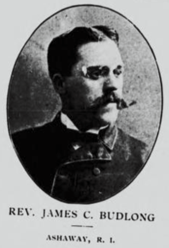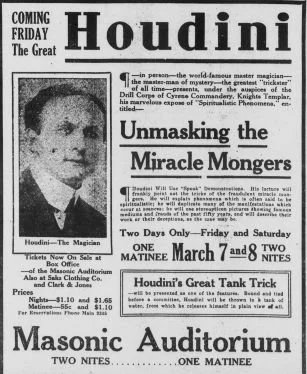19th Century Debunking
This is my first spooky season post of the year. Throughout October, I’ll highlight open access primary sources with Halloween-adjacent themes. I’ll start with…
The Victorians. They. were. WILD. I will almost certainly do more posts about them because they were into some crazy stuff and are always a kick to read about. Today’s post is tame in comparison to some of the stuff they got up to. That’s right, folks. Today we’re talking about Spiritualism.
Spiritualism - the 19th century belief that you could communicate with the spirits of the dead - began in 1848 in upstate New York when the Fox Sisters claimed to have talked to the ghost of a murder victim killed in their house years before. (Aside: AI can pry my em-dashes from my cold, dead hands.)
Before we get to the debunkers, we need to take a look at what was being debunked. For that, let’s hear some personal testimonies from 100 Spiritualist converts in this collection available on The Internet Archive. A few patterns emerge. Many of the testators mention having been sensitive as children, many already believed in other pseudo-science, and many were dissatisfied with traditional religion. Mrs. Sarah A. Webber of Guelph, Ontario, for example, said “[o]ne thing impressed me above all else: these people are happy and sure about their reward, instead of hoping that they will be saved.” And Rev. James C. Budlong, seen below, believed …”that Jesus and the apostles were undoubtedly mediums - and that the so-called miracles were performed by mediumistic powers.”
Obviously, this would have been seen as sacrilegious and be frowned upon by the church. But the church was not the only organization speaking out against Spiritualism. The scientific community, understandably, also largely disapproved. This led to a plethora of wonderful publications like this gem: Spiritualism and Allied Causes and Conditions of Nervous Derangement. In it, William Hammond explores various forms of “derangement” including spiritualism, somnambulism, hysteria, fasting girls, and stigmatization.
Notably, the Fox sisters themselves actually confessed to faking their seances. In 1888, the sisters went on stage at the Academy of Music in New York and demonstrated how they had faked the whole thing. In a written confession, published on October 21st in the New York World and referenced in the next day’s Evening Star, Mrs. Margaretta Fox Kane said of Spiritualism that “...unless it is put down soon it will do great evil.” Then went on to say that she “was the first in the field and [she had] a right to expose it.”
Yet somehow, despite the originators of Spiritualism confessing that it was indeed a hoax, the practice continued for another 40-odd years. In 1924, renowned magician Harry Houdini put tremendous effort into debunking Spiritualist mediums, going so far as to support Congressional anti-spiritualist legislation.
I hope you have enjoyed this foray into Spiritualism, with the aid of primary source material. Join me next time for haunted houses. Spooooookyyyyyy….



